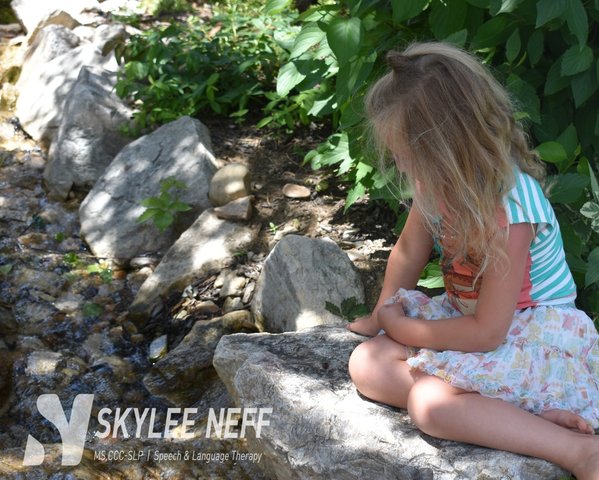
Let me get this out there right now: each child is different so we are all going to use different strategies while parenting our children.
In the past year I have become pretty concerned about some of the new parenting ideas floating around the internet. It seems like we are in this "hands off, let kids learn on their own" phase, where it is a problem when a mom teaches her child to share...or say thank you...or heaven forbid a parent actually put their kid in time-out!
As a mom when I read these articles I just come away scratching my head. So I can't teach my kids what is right and wrong, but somehow they are still going to turn out ok? WHAT?
I totally get behind some of the non-adultism movements, like I agree we shouldn't be forcing our kids to dole out kisses or hugs, sure. I totally get that kids need to be respected, and that they are human beings just like adults. BUT it has been pretty heavily researched...for almost 100 years (think of Piaget people) and today it still seems applicable: the mind of a child is not the same as the mind of an adult...it is still growing.
Kids are still developing! You can expect an adult to understand what someone else is feeling/thinking and (hopefully) share without being prompted. BUT our really young kids don't have that skill. They are still learning that everyone doesn't feel the way they do.
WE NEED TO TEACH THEM! I can tell you from my professional experience, how we interact with others involves social skills that need to be taught. Kids need parents to help them learn to say please, and thank you, and answer the door politely, and not cut in line. Just sitting back and watching is not enough, in my experience.
Suddenly it's not ok to give your kids positive reinforcement? I seriously read that we should not be using praise because it will manipulate behavior...WHAT? Again, look at the research people! Yes we should be careful about using rewards to control behavior because that does result in being extrinsically motivated (which we all are to some extent so chill). BUT using rewards to inform, support, and challenge, like praising effort, increases intrinsic motivation! See research by Mueller, C.M., & Dweck, C. S. (1998).
Sometimes kids do things that are not ok, not to be mean, or rude...because they are still developing and learning. How do you help them learn? You praise them for good choices, you model correct behaviors, you consistently help them succeed. If a child needs a break, you give them one, and in our house...that's called a time out.
I feel like some of the advice out there that is so fluffy that if I tried to follow it all I would go crazy. Here is the best parenting advice I have read this year:
As a parent, you probably don’t want to play referee within the walls of your own home. Good news—you shouldn’t have to! You’re a coach, and your children are on the same team, even if they don’t realize it yet. As you try to coach your children instead of referee them, they will feel secure in your love and grow to love each other more.
Here are four ways to help your children learn to get along:
In the past year I have become pretty concerned about some of the new parenting ideas floating around the internet. It seems like we are in this "hands off, let kids learn on their own" phase, where it is a problem when a mom teaches her child to share...or say thank you...or heaven forbid a parent actually put their kid in time-out!
As a mom when I read these articles I just come away scratching my head. So I can't teach my kids what is right and wrong, but somehow they are still going to turn out ok? WHAT?
I totally get behind some of the non-adultism movements, like I agree we shouldn't be forcing our kids to dole out kisses or hugs, sure. I totally get that kids need to be respected, and that they are human beings just like adults. BUT it has been pretty heavily researched...for almost 100 years (think of Piaget people) and today it still seems applicable: the mind of a child is not the same as the mind of an adult...it is still growing.
Kids are still developing! You can expect an adult to understand what someone else is feeling/thinking and (hopefully) share without being prompted. BUT our really young kids don't have that skill. They are still learning that everyone doesn't feel the way they do.
WE NEED TO TEACH THEM! I can tell you from my professional experience, how we interact with others involves social skills that need to be taught. Kids need parents to help them learn to say please, and thank you, and answer the door politely, and not cut in line. Just sitting back and watching is not enough, in my experience.
Suddenly it's not ok to give your kids positive reinforcement? I seriously read that we should not be using praise because it will manipulate behavior...WHAT? Again, look at the research people! Yes we should be careful about using rewards to control behavior because that does result in being extrinsically motivated (which we all are to some extent so chill). BUT using rewards to inform, support, and challenge, like praising effort, increases intrinsic motivation! See research by Mueller, C.M., & Dweck, C. S. (1998).
Sometimes kids do things that are not ok, not to be mean, or rude...because they are still developing and learning. How do you help them learn? You praise them for good choices, you model correct behaviors, you consistently help them succeed. If a child needs a break, you give them one, and in our house...that's called a time out.
I feel like some of the advice out there that is so fluffy that if I tried to follow it all I would go crazy. Here is the best parenting advice I have read this year:
As a parent, you probably don’t want to play referee within the walls of your own home. Good news—you shouldn’t have to! You’re a coach, and your children are on the same team, even if they don’t realize it yet. As you try to coach your children instead of referee them, they will feel secure in your love and grow to love each other more.
Here are four ways to help your children learn to get along:
- Give your children words and phrases to use. Instead of just saying, “Use your words,” tell your children exactly which words to use. “Say, ‘I would like a turn now’” or “Say, ‘I would like to play with you.’” Little ones don’t have quick access to very many words yet, and it will take a lot of practice before they do.
- Use stories. Children will like hearing about the times you learned to appreciate your brothers’ and sisters’ differences, especially if those brothers and sisters have grown into favorite uncles and aunts.
- Call time outs. Coaches call players off the field to rest and regroup. With rest instead of punishment in mind, you might provide a cozy time-out space for your child, like a comfy chair.
- Point out the good. When children are having fun together, make sure they notice. “I’m so grateful you have each other!” and “That was really nice of your sister to share with you. She must really love you.”
For Parents of Little Ones (2017, June). The Friend

 RSS Feed
RSS Feed
